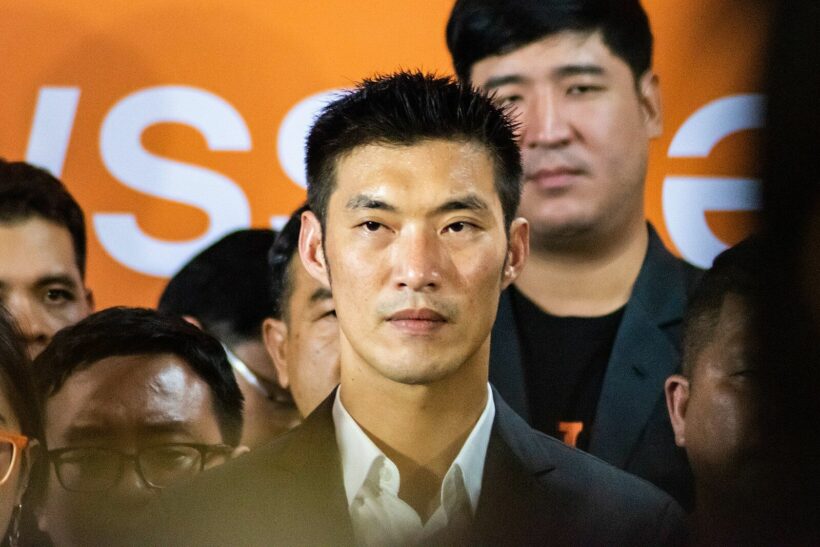Junta warned to be careful targeting rivals with petty litigation

PHOTO: Piyabutr Sangkanokkul reports to police yesterday using the, now popular, anti-government three-finger salute – The Nation
by Kai Chanwanpen
While members of pro-democracy parties continue to be targeted with politically-motivated lawsuits, a political scientist is warning this tactic of eliminating political rivals through trivial matters of law could backfire and lead to a legitimacy crisis down the track.
“All the unfairness that can be seen right now will lead people to question if Piyabutr would have been hit with a lawsuit if he were not so popular in the election.”
The pro- and anti-junta blocs have been going after each other since the election with politically motivated, and mostly relatively petty, lawsuits.
But when the court was petitioned to seek the disqualification of junta chief Prayut Chan-o-cha as a prime ministerial candidate because he was a public servant, the ruling went in favour of the incumbent.
While these kinds of political challenges are common around the world, Attasit said that public sentiment could play a major role in making any change.
“It’s how the public responds to the treatment that could improve this culture,” he said.
“Meanwhile, the authority has to provide an explanation and ensure that the due process of law is followed without victimising political rivals.”
Piyabutr has been charged with contempt of court and breaching the computer crime law for reading out a statement in relation to the dissolution of Thai Raksa Chart Party in February.
Piyabutr, a former law lecturer at Thammasat University, yesterday denied the charges. He insisted on his innocence, saying as a law scholar the criticism was meant as an academic comment and that he believed in the justice system.
“The chief of the NCPO is the PM candidate of a political party, which was a rival of Future Forward Party in the election and he has assigned an official to prosecute me for contempt of court,” he said.
“Let me make an observation: the judicial branch is a part of the sovereign state and cannot escape criticism, especially the Constitutional Court which rules on political conflicts and whose judgement is likely to be scrutinised,” Piyabutr told reporters.
“Disagreement with a court judgement is not a crime.”
SOURCE: The Nation
Latest Thailand News
Follow The Thaiger on Google News:


























